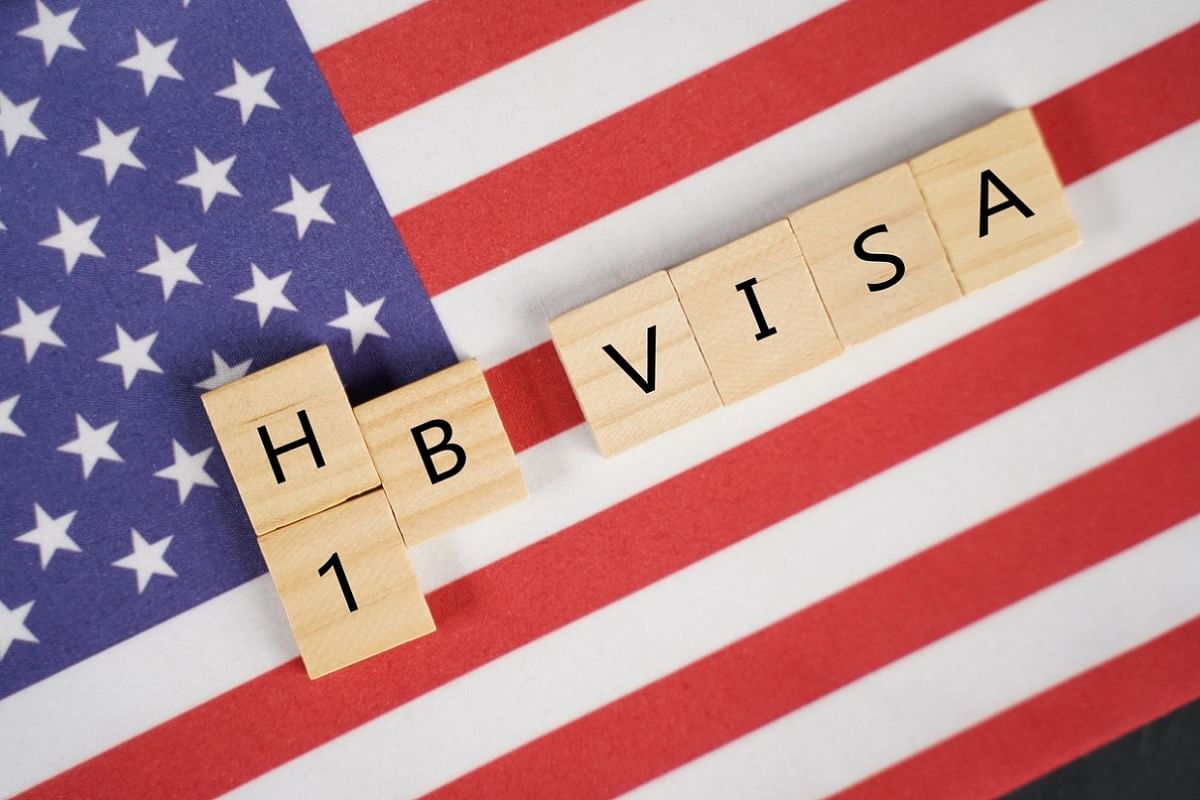In a significant policy update, the United States government has announced the extension of work permits to Indian spouses of H-1B visa holders. This decision marks a pivotal shift in immigration policies that have long impacted the lives and careers of many Indian nationals residing in the U.S.
Understanding the H-1B Visa Program
The H-1B visa program is designed to allow U.S. employers to temporarily employ foreign workers in specialty occupations that require specialized knowledge and expertise. These occupations typically include fields such as technology, engineering, healthcare, and finance. Many skilled professionals from India and other countries apply for H-1B visas to work in the United States, contributing significantly to various sectors of the American economy.
Historical Context: Challenges Faced by H-4 Visa Holders
Historically, spouses of H-1B visa holders, known as H-4 visa holders, faced significant limitations regarding their ability to work legally in the United States. This restriction often posed challenges for families, particularly in dual-income households, where spousal employment was crucial for financial stability and career advancement.
The Impact of the Policy Change
The recent decision to grant work permits to Indian spouses of H-1B visa holders is expected to have several positive impacts:
- Empowerment of Spouses: Indian spouses on H-4 visas will now have the opportunity to seek employment in the United States, enhancing their professional development and economic independence.
- Economic Benefits: Increased workforce participation among H-4 visa holders is likely to contribute to household incomes, consumer spending, and overall economic growth.
- Career Advancement: Spouses can now pursue career opportunities aligned with their skills and qualifications, further enriching the diversity and talent pool in American workplaces.
Policy Implementation and Requirements
The extension of work permits for H-4 visa holders is subject to specific eligibility criteria and procedural steps:
- Eligibility: Spouses must be in valid H-4 visa status and meet certain regulatory requirements set by the U.S. Citizenship and Immigration Services (USCIS).
- Application Process: Interested spouses are required to file Form I-765, Application for Employment Authorization, with USCIS. Upon approval, they will receive an Employment Authorization Document (EAD), commonly known as a work permit.
- Work Authorization: The EAD allows spouses to legally work in the United States for a specified period, typically in alignment with the validity of their H-4 visa status.
Social and Cultural Implications
Beyond economic benefits, the policy change holds broader social and cultural significance:
- Family Integration: It promotes family unity by enabling both partners to contribute economically and fulfill their career aspirations.
- Community Integration: Increased workforce participation among immigrant spouses fosters community engagement, cultural exchange, and social integration.
Work Visa for the USA :Rajkotupdates.news : America Granted Work Permits For Indian Spouses of H-1 B Visa Holders
- Foreign spouses of US citizens may apply for work permits if their spouse sponsors them, meets certain requirements, have a valid visa, and more.
- Foreign spouses are given work permits that give them the legal right to work in the US. A longer stay in the country than tourists or other non-immigrant visitors is also made possible by these factors.
- Although there might be some paperwork requirements and an interview with a US Citizenship and Immigration Services (USCIS) officer, the process for obtaining a USCIS Translation Services work permit is typically straightforward.
- When applying for a visa or requesting entry into the US, you must show your work permit once you have one.
Eligibility for a US Work Visa
- If your spouse is a citizen of the United States who is traveling on an H-1B visa and you are an Indian national, you might be able to obtain a work permit.
- It is a requirement that your spouse be a lawful spouse in the US.
- A valid H-1B visa must be held by your spouse who is American.
- You are not allowed to lie or deceive anyone during the course of your marriage.
- You and your American partner had to get to know one another before getting married.
- A work permit can only be issued if it’s determined that neither an American citizen nor a permanent resident is adequate to fill the position you’ve been hired for.
- You must submit an application to the Department of State’s Bureau of Citizenship and Immigration Services (BCIS) in order to be granted a work permit. In order to avoid delays in the application process, be sure to submit your request with all necessary supporting documentation.
What is an H-1B Visa? according to “Rajkotupdates.news : America Granted Work Permits For Indian Spouses of H-1 B Visa Holders”
The H-1B visa, is a nonimmigrant work permit.It enables employers in the United States to hire foreign nationals with specialized skills to work in the nation for a predetermined period of time. Therefore the typical requirement for the positions is a bachelor’s degree or an equivalent. (Ambien) The H-1B visa is frequently used for positions in the technology, financial, engineering, architectural, and other sectors.
Rajkotupdates.news : America Granted Work Permits For Indian Spouses of H-1 B Visa Holders: Eligibility for an H-1B Visa
- A genuine job offer from a company in the United States for a position requiring specialized knowledge.
- It is necessary to have a bachelor’s degree or comparable work experience in that field.
- Your employer must show that there are few American candidates who meet the requirements for the position.
Conclusion
The decision to grant work permits to Indian spouses of H-1B visa holders underscores the United States’ commitment to inclusive immigration policies and support for skilled professionals and their families. By enabling spousal employment opportunities, the policy aims to enhance economic mobility, promote diversity in the workforce, and strengthen the socio-economic fabric of the nation.

